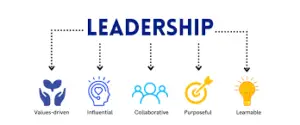When it comes to leadership, some topics just seem to spark debates left, right, and center. Yep, we’re talking about those controversial leadership topics that make you squirm a bit in your seat but also get your brain buzzing with ideas. From diversity and inclusion dilemmas to the ethics of decision-making, these are the issues that keep leaders on their toes.
Seriously, diving into controversial leadership topics is like stepping into a whirlwind of different opinions, values, and beliefs. It’s a bit like walking a tightrope – you’ve got to find that delicate balance between pushing for progress and keeping the peace.
Whether it’s wrestling with power dynamics, grappling with the impact of technology, or figuring out how to lead sustainably, these topics force us to really dig deep and think hard about what it means to lead in today’s world.
Reasons controversial Leadership topics should be discussed

Controversial leadership topics should be discussed for several reasons:
- Promotes Critical Thinking: Discussing controversial topics encourages individuals to think critically about various perspectives, arguments, and evidence. This fosters a deeper understanding of complex issues and helps individuals develop their analytical skills.
- Fosters Diversity of Thought: In a diverse workplace or community, people have different experiences, backgrounds, and viewpoints. Discussing controversial topics allows for the exploration of these diverse perspectives, leading to richer discussions and potentially innovative solutions.
- Strengthens Decision-Making Skills: Leaders often face tough decisions that may have controversial implications. Engaging in discussions about controversial topics can help leaders hone their decision-making skills by considering various viewpoints, weighing pros and cons, and understanding the potential consequences of their actions.
- Builds Trust and Transparency: Openly discussing controversial topics demonstrates transparency and authenticity, which can build trust among team members, employees, or constituents. When leaders are willing to address challenging issues head-on, it shows that they are committed to honest communication and addressing concerns openly.
- Encourages Growth and Learning: Controversial topics often arise from societal or organizational challenges. By discussing these topics, leaders have the opportunity to learn from different perspectives, reflect on their own beliefs and biases, and adapt their approaches accordingly. This continuous learning process is essential for personal and professional growth.
- Addresses Uncomfortable Realities: Ignoring controversial topics does not make them disappear. By discussing these topics openly, leaders can confront uncomfortable realities, such as systemic inequalities, ethical dilemmas, or organizational shortcomings. This proactive approach allows for constructive dialogue and potential solutions rather than letting issues fester.
- Drives Innovation and Change: Some of the most significant innovations and societal changes have emerged from discussions about controversial topics. By encouraging dialogue and debate, leaders can inspire creative thinking and spark initiatives that drive positive change within organizations and communities.
Overall, discussing controversial leadership topics promotes intellectual growth, strengthens decision-making abilities, builds trust and transparency, encourages diversity of thought, addresses uncomfortable realities, and drives innovation and change. It’s an essential aspect of effective leadership and organizational development.
Where should controversial Leadership topics should be discussed?
Controversial leadership topics can be discussed in various settings, depending on the nature of the topic and the goals of the discussion. Here are some potential venues for these discussions:
- Boardrooms and Executive Meetings: Within organizations, controversial topics can be addressed in boardrooms or executive meetings where key decision-makers gather. These forums provide a private and focused environment for leaders to engage in in-depth discussions and make strategic decisions.
- Team Meetings and Workshops: Controversial topics relevant to a specific team or department can be discussed in team meetings or workshops. These settings allow team members to share their perspectives, collaborate on solutions, and strengthen team cohesion.
- Training Sessions and Development Programs: Leadership development programs and training sessions offer opportunities to explore controversial topics in a structured and educational setting. Facilitators can guide discussions, provide relevant resources, and encourage participants to reflect on their own beliefs and biases.
- Industry Conferences and Seminars: Conferences, seminars, and industry events often feature panel discussions, keynote speeches, and breakout sessions on controversial leadership topics. These events bring together professionals from diverse backgrounds and provide a platform for thought-provoking dialogue and networking.
- Online Forums and Discussion Groups: Virtual platforms such as online forums, social media groups, and professional networking sites offer spaces for individuals to engage in discussions about controversial topics. These platforms facilitate broader participation and enable people from different locations to exchange ideas and perspectives.
- Academic Institutions and Research Centers: Universities, colleges, and research centers often host lectures, symposiums, and roundtable discussions on controversial leadership topics. These events bring together scholars, practitioners, and students to explore cutting-edge research and real-world implications.
- Community Meetings and Town Halls: In community settings, controversial topics relevant to local governance, social issues, or public policy can be discussed in town hall meetings, community forums, or neighborhood gatherings. These forums allow community members to voice their concerns, engage with elected officials, and advocate for change.
- Professional Associations and Industry Groups: Professional associations and industry-specific organizations frequently organize events, webinars, and forums focused on controversial leadership topics relevant to their members. These platforms facilitate knowledge sharing, professional development, and networking opportunities within specific sectors.
Ultimately, the choice of venue for discussing controversial leadership topics should consider factors such as the audience, the level of formality, the accessibility of participants, and the desired outcomes of the discussion. It’s essential to create a safe and respectful environment where diverse viewpoints can be shared, and constructive dialogue can take place.


